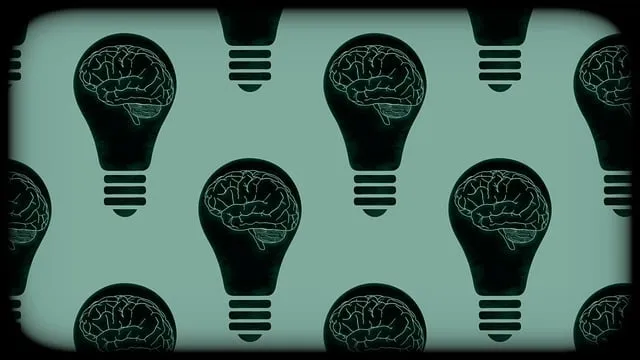Golden Kaiser Permanente's Crisis Intervention Teams (CITs), highly praised in behavioral health service reviews, are multidisciplinary squads that swiftly address crises with a focus on safety and connection to ongoing support. Through integrating emotional intelligence and cultural sensitivity training, CIT members tailor their responses to individual needs, enhancing mental health outcomes and self-care routines. Their innovative approach combines theoretical knowledge, hands-on experience, interactive workshops, and real-life scenario simulations, empowering healthcare professionals to effectively manage high-pressure situations with empathy and competence, as highlighted in their behavioral health services reviews.
In today’s complex healthcare landscape, effective crisis intervention teams (CITs) are a vital resource in behavioral health. These specialized groups play a crucial role in managing and de-escalating critical situations, offering immediate support to individuals in distress. This article explores the significance of CIT training programs, drawing insights from industry leaders like Golden Kaiser Permanente Behavioral Health Services, renowned for their innovative approach. Through examining essential components of these programs, we uncover strategies to enhance crisis management and improve patient outcomes, backed by valuable Golden Kaiser Permanente behavioral health services reviews.
- Understanding Crisis Intervention Teams: A Vital Resource in Behavioral Health
- Golden Kaiser Permanente Behavioral Health Services: Unveiling Their Approach to Training
- Essential Components of Effective Crisis Intervention Team Training Programs
Understanding Crisis Intervention Teams: A Vital Resource in Behavioral Health

Crisis Intervention Teams (CITs) are a vital resource in behavioral health services, offering immediate and specialized support during times of crisis. These teams typically consist of trained professionals from various disciplines, such as mental health therapists, social workers, and law enforcement officers, who work collaboratively to de-escalate high-risk situations and provide effective interventions. The concept behind CITs is to offer a coordinated response to individuals in psychological distress, focusing on safety, stability, and connection to ongoing support services.
Golden Kaiser Permanente behavioral health services reviews highlight the positive impact of these teams in community outreach program implementations. By integrating emotional intelligence practices into their training, CIT members enhance their ability to understand and respond to the unique needs of each individual in crisis. This approach not only improves outcomes for those in distress but also fosters a more compassionate and effective response from mental health service providers, ultimately contributing to better self-care routine development for better mental health.
Golden Kaiser Permanente Behavioral Health Services: Unveiling Their Approach to Training

Golden Kaiser Permanente Behavioral Health Services stands out for its innovative approach to crisis intervention team training. They emphasize a holistic model that integrates Cultural Sensitivity in Mental Healthcare Practice, ensuring their programs cater to diverse communities with unique needs. Through interactive workshops and real-life scenario simulations, participants gain practical skills in Coping Skills Development, fostering an environment where individuals learn to navigate mental health challenges effectively. The program also delves into the Mind Over Matter Principles, empowering teams to support clients in building resilience and coping mechanisms that go beyond traditional crisis management.
Reviewers praise Golden Kaiser Permanente Behavioral Health Services for its comprehensive curriculum, highlighting the balance between theoretical knowledge and hands-on experience. This blend prepares crisis intervention teams to handle a wide range of situations with empathy and competence, making their training programs highly effective and sought-after in the field.
Essential Components of Effective Crisis Intervention Team Training Programs

Effective crisis intervention team (CIT) training programs are pivotal in equipping healthcare professionals with the necessary tools to navigate and de-escalate high-pressure situations, ensuring positive patient outcomes. A comprehensive CIT training curriculum should incorporate several key components to foster proficiency and confidence among team members.
Firstly, interactive and role-play scenarios are instrumental in simulating real-life crisis situations. This hands-on approach allows participants to apply theoretical knowledge, enhancing their ability to manage distressing scenarios effectively. Secondly, integrating evidence-based practices such as mindfulness meditation and emotional intelligence training equips teams with strategies for anxiety relief and empathetic communication, crucial for building trust and rapport with individuals in crisis. Additionally, Golden Kaiser Permanente behavioral health services reviews highlight the importance of regular evaluation and feedback mechanisms, ensuring continuous improvement within CIT programs. By combining practical exercises, evidence-based techniques, and constructive feedback, these training programs can empower healthcare teams to provide timely and compassionate intervention during crises.
Crisis intervention team (CIT) training programs are a critical component in enhancing behavioral health support systems. As highlighted by Golden Kaiser Permanente behavioral health services reviews, specialized training equips professionals with essential skills to manage crises effectively. By integrating evidence-based practices and fostering collaborative teamwork, these programs ensure CIT members can provide timely and appropriate interventions. Through continuous evaluation and adaptation, effective CIT training prepares teams to navigate complex scenarios, ultimately improving outcomes for individuals in distress.






